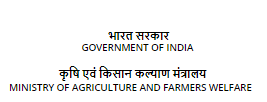Novel antitick phyto pharmaceutical formulations (TK-5, TK-10, TK-C) against tick infestations in livestock and pets animals
Background:
Amongst the 109 tick species reported from India, Rhipicephalus (Boophilus) microplus is the most economically important (Ghosh et al., 2007) and the impact of TTBDs on Indian economy has been estimated at the tune of $787.63 million/year. A number of chemical acaricides viz., Synthetic Pyrethroids (SP), Organophosphates (OP), Formamidines, Macrocyclic Lactones (ML) and phenylpyrazoles are in use to manage tick infestations on livestock. Due to continuous use of these chemicals, ticks have developed resistance to most of these acaricides besides causing environmental pollution and resides in milk and meat. During the last ten year nearly arge scale resistance in ticks against different acaricides including a recently and commonly used drug i.e. ivermectin, as reported by many workers (Singh et al., 2015; Kumar et al., 2011, 2014, 2015; Sharma et al., 2012; Ghosh et al., 2015; Shyma et al., 2015; Chigure et al., 2018; Nandi et al., 2018; Sagar et al., 2019; Upadhaya et al., 2020). Synthetic chemicals cause damage on enzootic stability, environmental pollution, toxic residues in milk and meat, human health hazards. All these issues reinforce the need for alternative eco-friendly sustainable approaches for tick management:
Present invention deals with the development of ecofriendly phyto- formulations for managing ivermectin-resistant tick population which is emerging as a severe problem in the country. But till date no suitable commercial product is available in the market. To tackle the aforesaid problems, three phyto-pharmaceutical formulations were developed using a common weed plant as a raw material which is widely available across the country. The plant can be grown in minimum agronomical conditions. The formulations are standardized using five marker compounds:
The main objective of the present invention is to develop an anti-tick phyto-pharmaceutical formulation for the management of especially ivermectin-resistant tick species infesting livestock and pet animals and to minimize the use of chemical insecticides on animals and on environment for tick management, to improve the quality of animal products and to promote green agriculture.
Ticks have developed multi-acaricides resistance and resistance against ivermectin is coming up very fast due to uncontrolled use of the drug. No suitable alternative is existing to manage the situation. The technology is targeted to address the problem of multi-acaricides including ivermectin resistant tick population in a sustainable manner and thus will be helpful to minimize the indiscriminate free flow of synthetic insecticides on animals and in the environment:
Technology Details:
Unique features of the technology:
? Eco-friendly, safe and chemically characterized acaricidal phyto-pharmaceutical formulations (cream and flowable):
? Lead compounds are in the list of FEMA and FDA approved chemicals:
? Prepared from widely available herbaceous plant:
? Effective against Synthetic pyrethroids, Organophosphate and Ivermectin resistant ticks infesting livestock and pet animals:
? The animal products will be free from residual toxicity:
? Production cost is optimum:
? No dedicated facilities is to be created for commercial production of the formulation in the existing infrastructure of market players:
? Stable at different temperature conditions without losing anti-tick activity
In vitro efficacy of the formulations: The developed formulations TK-5, TK-10 and TK-C were tested against predominant economically important tick species. Irrespective of tick species, the average efficacy of the TK-5 formulation was in the range of 78- 84.25%, for TK-10 it was 80- 88% while 80.25 – 85% efficacy was noted using TK-C formulation (Table 1):
These formulations were 65-90% effective against reference pyrethroid (IVRI-IV) and Mult acaricide resistant (IVRI-V) tick strains. The flowable and cream formulations were 55-95% and 85-95% efficacious, respectively against field ticks resistant to Organophosphates, Synthetic Pyrethroid and Ivermectin:


